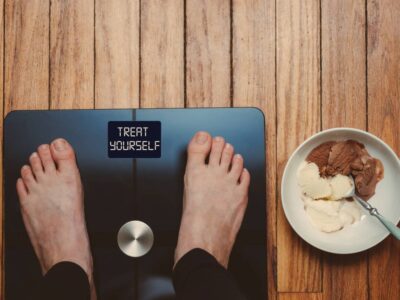Most adults consume caffeine daily, often to boost their mood and improve performance. Caffeine is naturally found in coffee beans, tea leaves, cacao pods, and kola nuts, and it’s also added to some medications and energy drinks.
Caffeine helps people wake up in the morning and stay alert during the day, but it can have side effects like jitteriness, headaches, and nervousness. It can also disrupt sleep, especially if consumed too late in the day.
Why Does Coffee Make You Awake?
Coffee is a popular beverage that helps people feel more awake and alert, especially in the morning or during periods of tiredness. This effect is mainly due to caffeine, a natural stimulant found in coffee.
Here’s a breakdown of why coffee makes you feel more awake:
What is Caffeine?
Caffeine is a chemical compound found in various plants, including coffee beans, tea leaves, and cacao pods. It is known for its stimulating effects on the human body and is widely consumed worldwide in different forms such as coffee, tea, energy drinks, and chocolate.
How Does Caffeine Work?
Caffeine works by blocking the effects of a neurotransmitter called adenosine. Adenosine is a chemical in the brain that promotes sleep and relaxation. Throughout the day, adenosine levels build up in the brain, making you feel increasingly tired. When you consume caffeine, it blocks adenosine from binding to its receptors, preventing the feeling of tiredness.

The Science Behind It
- Blocking Adenosine: Adenosine usually binds to its receptors in the brain, slowing down neural activity and making you feel sleepy. Caffeine competes with adenosine for these receptors. By blocking adenosine, caffeine allows for increased neural activity, which keeps you alert and awake.
- Releasing Neurotransmitters: When caffeine blocks adenosine, it leads to the release of other neurotransmitters like dopamine and norepinephrine. These chemicals enhance mood, increase heart rate, and improve focus and concentration.
- Stimulating the Central Nervous System: Caffeine also stimulates the central nervous system, which leads to increased alertness and energy levels. This is why many people rely on coffee to kick-start their day or to stay awake during long working hours.
How Long Does It Last?
The effects of caffeine can vary depending on several factors, including your metabolism, age, and sensitivity to caffeine. Generally, caffeine starts to work within 15 minutes of consumption and peaks in the bloodstream within 30-60 minutes. The effects can last for several hours, usually between 3 to 5 hours, but it can take up to 10 hours for caffeine to completely clear from your system.
Benefits of Coffee
- Increased Alertness: As mentioned, coffee helps you stay awake and alert, which can be particularly useful during early mornings or late-night study sessions.
- Improved Physical Performance: Caffeine can also enhance physical performance by increasing adrenaline levels in the blood. This can be beneficial for athletes or anyone engaging in physical activities.
- Boosted Mood: The release of dopamine due to caffeine consumption can improve mood and provide a sense of well-being.
Potential Downsides
While coffee has many benefits, excessive consumption can lead to some negative effects such as:
- Insomnia: Drinking too much coffee or consuming it late in the day can interfere with your sleep patterns.
- Anxiety: High doses of caffeine can lead to increased anxiety and jitteriness.
- Dependence: Regular consumption of large amounts of caffeine can lead to dependence and withdrawal symptoms like headaches, fatigue, and irritability when you don’t get your usual dose.
In summary, coffee helps you stay awake primarily because of caffeine, which blocks the sleep-promoting effects of adenosine and stimulates the central nervous system.
While coffee can be a helpful tool for staying alert and improving mood and physical performance, it’s important to consume it in moderation to avoid potential negative effects.
How Late is Too Late to Drink Caffeine?
The question of how late is too late to drink caffeine depends on several factors, including individual sensitivity to caffeine, metabolism, and personal sleep patterns.
However, there are some general guidelines that can help you determine the best time to avoid caffeine to ensure a good night’s sleep.
Factors to Consider

- Caffeine Half-Life: The half-life of caffeine, which is the time it takes for the body to eliminate half of the caffeine consumed, is typically about 5 to 6 hours for most people. This means that if you drink a cup of coffee containing 100 mg of caffeine at 4 PM, you could still have around 50 mg in your system by 10 PM.
- Individual Sensitivity: Some people are more sensitive to caffeine than others. If you find that even a small amount of caffeine affects your sleep, you may need to stop drinking caffeinated beverages earlier in the day.
- Age and Metabolism: As people age, their metabolism can slow down, which can extend the half-life of caffeine. Older adults may need to stop drinking caffeine even earlier to avoid sleep disturbances.
- Sleep Patterns: If you generally have trouble falling asleep or staying asleep, it’s best to be more cautious about your caffeine intake. People with insomnia or other sleep disorders should be particularly careful with caffeine consumption.
General Guidelines
- Stop 6-8 Hours Before Bed: A common recommendation is to avoid caffeine at least 6 to 8 hours before bedtime. For example, if you plan to go to bed at 10 PM, you should avoid caffeine after 2 to 4 PM.
- Listen to Your Body: Pay attention to how your body reacts to caffeine. If you notice that drinking coffee in the afternoon keeps you awake at night, adjust your consumption accordingly.
- Moderation is Key: Even if you don’t feel immediate effects, consuming high amounts of caffeine throughout the day can still impact your overall sleep quality. Try to moderate your intake and not rely heavily on caffeine for energy.
Special Considerations
- Decaffeinated Options: If you enjoy the ritual of an evening coffee or tea, consider switching to decaffeinated options. Decaf coffee contains much less caffeine than regular coffee and is less likely to interfere with sleep.
- Hidden Sources of Caffeine: Be aware of hidden sources of caffeine, such as chocolate, certain medications, and even some types of ice cream. These can contribute to your overall caffeine intake and potentially affect your sleep.
- Caffeine Tolerance: Regular caffeine drinkers may develop a tolerance over time, meaning they require more caffeine to achieve the same effects. However, this tolerance can also mean that they may not feel the stimulant effects as strongly. Despite this, high levels of caffeine can still impact sleep quality.
To ensure a good night’s sleep, it’s generally recommended to avoid caffeine at least 6 to 8 hours before bedtime. Individual sensitivity to caffeine varies, so it’s important to listen to your body and adjust your consumption as needed.
How Much is Too Much Coffee?
Determining how much coffee is too much depends on various factors, including individual tolerance, health conditions, and overall lifestyle. However, there are general guidelines provided by health organizations that can help you understand safe consumption levels.
General Guidelines
- Recommended Daily Intake: According to the U.S. Dietary Guidelines, up to 400 milligrams (mg) of caffeine per day is considered safe for most adults. This is roughly equivalent to four 8-ounce cups of brewed coffee. Beyond this amount, the risk of adverse effects increases.
- Individual Variations: People metabolize caffeine at different rates. Some may experience negative effects with lower amounts, while others might tolerate higher amounts without issues. Genetics, age, weight, and sensitivity to caffeine all play a role in determining your personal limit.

Potential Negative Effects of Excessive Coffee Consumption
- Insomnia: High caffeine intake can interfere with your ability to fall asleep and stay asleep. This can lead to sleep deprivation and negatively affect overall health and well-being.
- Anxiety and Jitters: Consuming too much caffeine can cause increased heart rate, anxiety, nervousness, and jitteriness. This is particularly problematic for people with anxiety disorders.
- Digestive Issues: Excessive coffee can lead to digestive problems, such as acid reflux, heartburn, and upset stomach. Coffee is acidic and can irritate the stomach lining in sensitive individuals.
- Dependence and Withdrawal: Regular high consumption of coffee can lead to caffeine dependence. Withdrawal symptoms include headaches, fatigue, irritability, and difficulty concentrating when you reduce or stop intake.
- Increased Heart Rate and Blood Pressure: High doses of caffeine can cause a temporary increase in heart rate and blood pressure. This might be concerning for people with heart conditions or high blood pressure.
Special Considerations
- Pregnant Women: Pregnant women are advised to limit their caffeine intake to 200 mg per day, about one 12-ounce cup of coffee, as high caffeine intake can increase the risk of miscarriage and affect fetal development.
- Children and Adolescents: The American Academy of Pediatrics recommends that children and adolescents avoid caffeine. If consumed, it should be limited to 100 mg per day, as caffeine can affect their developing bodies and brains.
- Health Conditions: Individuals with certain health conditions, such as heart arrhythmias, anxiety disorders, or gastrointestinal problems, should consult with their healthcare provider about safe caffeine consumption levels.
Tips for Managing Coffee Consumption
- Monitor Intake: Keep track of how much coffee you drink daily. This includes being aware of other sources of caffeine, such as tea, energy drinks, soft drinks, and certain medications.
- Moderation: Aim to drink coffee in moderation. Enjoy your coffee, but avoid relying on it as your primary source of energy.
- Listen to Your Body: Pay attention to how your body reacts to caffeine. If you experience negative effects, consider reducing your intake.
- Choose Alternatives: If you enjoy the ritual of drinking coffee but want to cut back on caffeine, consider drinking coffee with milk and then decaffeinated coffee or other caffeine-free beverages like herbal tea.
How Can You Tell if Caffeine Is Affecting Your Sleep?
If you have trouble falling or staying asleep, feel nauseous, have headaches, or feel nervous, it might be due to too much caffeine. If you’re very sleepy during the day and caffeine doesn’t help, it could be a sign of a sleep disorder or another medical issue. Talk to your doctor about your sleep problems and how caffeine might be affecting you.
If you want to cut back on caffeine, do it gradually. This can help avoid withdrawal symptoms like headaches, anxiety, and a low mood.
How Else Can You Stay Alert During the Day?
There are many ways to boost your energy without caffeine:
- Get Morning Light Exposure: Your body’s internal clock uses light to signal that it’s time to wake up and be alert. Turn on bright lights or, better yet, go outside for natural light to help start your day.
- Practice Healthy Sleep Habits: Set a consistent sleep schedule and create a relaxing sleep environment. These good sleep habits can improve your rest and reduce the need for caffeine.
- Exercise: Regular exercise can boost your alertness and help you sleep better at night.
- Take a Power Nap: A short nap of up to 20 minutes can temporarily restore your energy if you’re feeling sleepy. Just remember, napping isn’t a replacement for good nighttime sleep.










Comments